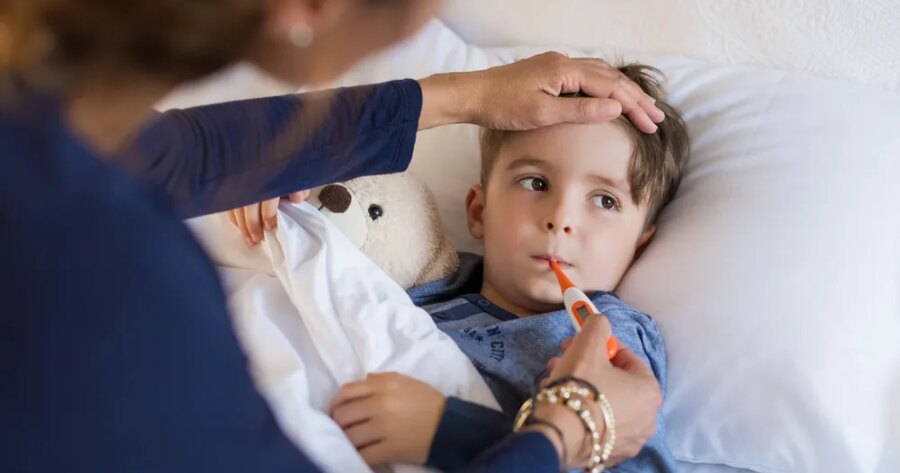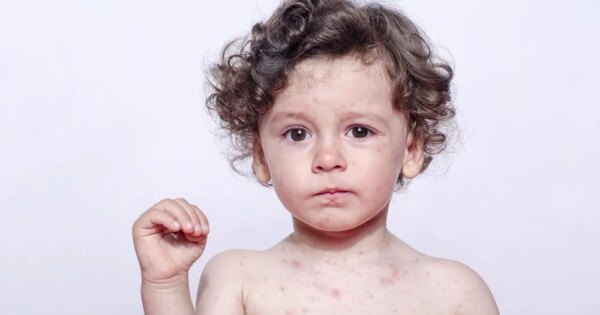Parents are extra vigilant about their child’s health, but the fact is at one point or another, your child will get sick with or without regular medical checkups. That doesn’t mean you shouldn’t seek medical attention when your child is ill, however you should remember to keep the situation in context to help you remain calm.
That being said, it’s Children’s Health Month in October, so that presents a great opportunity to shine a light on some of the more common ailments your child may have and how to deal with them. Here are nine of them…
1. Croup Cough
This is a common ailment among children under 5-years of age, and is not usually serious (even though it sounds like a barking seal), according to Health Direct based in Australia.
This illness is caused by the same viruses that lead to the common cold, adds the source. If you notice your child struggling to breathe between coughs, or their breathing becomes labored even when relaxed, then it’s time to call a doctor.
2. Respiratory Synctial Virus
You may never have heard of this illness better known as RSV, but about 150,000 children a year end up in the hospital because of it, according to Parents.com.
This illness targets the lungs, and can be easily mistaken for a cold. However, RSV can be especially hard on premature babies or those with a compromised immune system, explains the site. If you detect hurried breath or wheezing, and he or she is refusing to drink anything, call your doctor.
3. Gastroenteritis
You probably already know in your gut that any ailment that starts with “gastro” is bad, especially when it comes to children. You guessed right: this is a fancy medical term for the stomach flu, which probably means multiple trips to the bathroom for junior and potentially late nights for you.
Complications for children with stomach flu also include dehydration, so keep an eye out for dry skin or unusually dry diapers. Don’t give your kid any medicine until you consult a physician, as drugs aren’t usually given to children under 5-years old, according to WebMD.
4. Strep Throat
The wicked stepmother of sore throats, strep can be hard to swallow for children older than toddler age (infants and toddlers don’t usually get it, says Parents.com).
The infection is named after the streptococcus bacteria, which is highly contagious. Aside from a very sore throat, your little one might also develop a fever, stomach pain and swollen lymph nodes, adds the site. Once diagnosed, antibiotics are usually the answer.
5. Ear Infections
Small auditory tubes within the ear structure means kids are more prone to ear infections, notes WebMD. That’s because these tubes that connect the throat to the ear can easily become clogged by infections (such as a cold) that results in inflammation.
The result is that fluid will become trapped in the inner ear, behind the eardrum, and become a breeding ground for germs, explains the source. If you notice your kid shaking his or her head, grabbing at their ears, or running a temperature, have the doc check it out.
6. Conjunctivitis
Known as “pink eye” in the playground, it is the inflammation of the outer membrane of the whites of the eyes, explains KidsHealth.org. The look of it can be alarming, making you think there’s something horribly wrong; but the site reminds you that it rarely leads to any long-term eye damage.
However, it’s still important to see a doctor when your child has redness in their eyes not caused by crying or other obvious events. While pink eye usually fades away (it is sometimes an allergic reaction), in some cases medical intervention is needed to calm it, says the source. Pink eye in newborns can be especially serious, which is why antibiotic drops are given right after birth.
7. Chicken Pox
This starts as tiny red bumps on your child, which then expands into fluid-filled blisters, explains BabyCenter.com. They’re not any nicer than it sounds; the site notes that children get up to 500 of these blisters, usually beginning to appear on the head and working their way down.
Even vaccinated children can get the chicken pox, but it will likely be less severe in this case, notes the source. It’s rare to get chicken pox twice or before the age of one – however, those who have had chicken pox can still develop a painful nerve condition called shingles later in life (fortunately, there’s a vaccine for that too).
8. Whooping Cough
This is the nasty older sibling of croup, and can literally take your baby’s breath away. The Centers for Disease Control and Prevention (CDC) warn this severe cough known medically as Pertussis can cause your infant to stop breathing, requiring immediate medical attention in many cases.
Whooping cough is contagious, so if another member of the family has it, keep them away from the youngest. Pregnant women can get a vaccination in the third trimester, and the baby can also get vaccines based on a schedule.
9. Meningitis
It’s often referred to as the “kissing disease,” but young children are also at risk of contracting it. Common symptoms of Meningitis in toddlers include fever, nausea/vomiting, red ticks, pain in the limbs, and pale skin, according to Meningitis.org.
Your child may also be extra sensitive to bright lights and act confused about their surroundings. It’s similar to another illness called Septicaemia (blood poisoning), but Meningitis has unique symptoms such as a severe headache and even seizures in some cases. Try the Tumbler test to confirm what it is, but seek medical attention quickly in any case.












